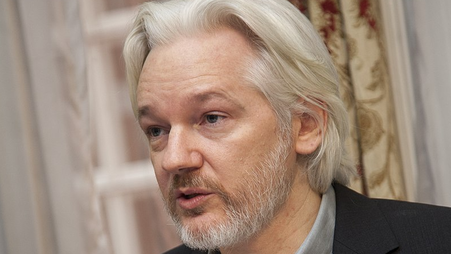Justice Dept. and Julian Assange reach plea deal in case that threatens press freedom


AP Photo/Cliff Owen
The Espionage Act is an unconstitutional law used to prosecute whistleblowers and news publishers.
The Espionage Act is a broad secrecy law that outlaws the sharing of defense information with anyone, for any reason.
In recent years, the law has been wielded to stifle dissent and journalism. Whistleblowers have been imprisoned under the law. It’s also been used against journalists and news outlets that publish government secrets.
We must reform the Espionage Act to distinguish between spying and the exposing of wrongdoing.

Assange's prosecution should be condemned by all who believe in press freedom

We will honor our friend by fighting for what he fought for his entire life: an end to excessive government secrecy.

Criminalization of routine newsgathering undermines press freedom everywhere

First Amendment dangers extend far beyond immigration reporting

Misguided debates around the Espionage Act have led to a flood of misinformation about what the often-abused law actually does in practice. Left unchecked, it will have a lasting effect on important reform efforts.

For years, DOJ has abused the Espionage Act against whistleblowers and journalists. A new bill could potentially change that.

Regardless of your feelings on Assange, the U.S. indictment against him will criminalize common newsgathering practices used by countless journalists.

The Nixon admin tried to prosecute the New York Times under the same statute the Justice Department is going after Julian Assange today.

A UK appeals court has allowed the United States to proceed in its extradition of Wikileaks publisher Julian Assange, overturning an earlier ruling that denied prosecutorial efforts based on the inhumane conditions of the American prison system.

The United States prosecution of Julian Assange is a threat to press freedom around the globe. A coalition of more than two dozen press freedom, civil liberties, and international human rights groups is demanding the charges be dropped.